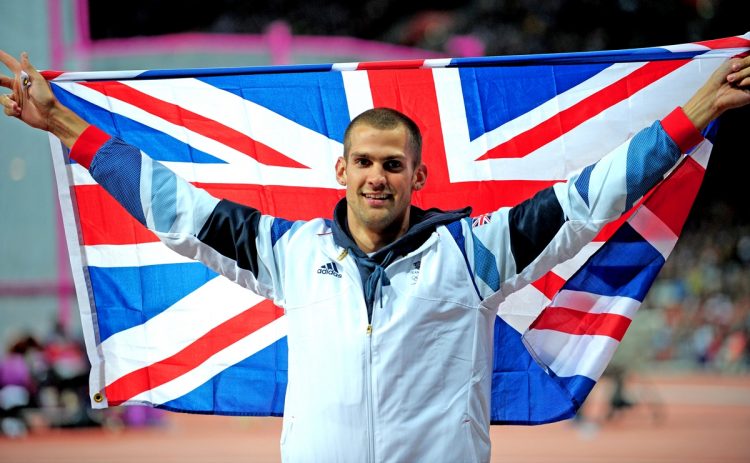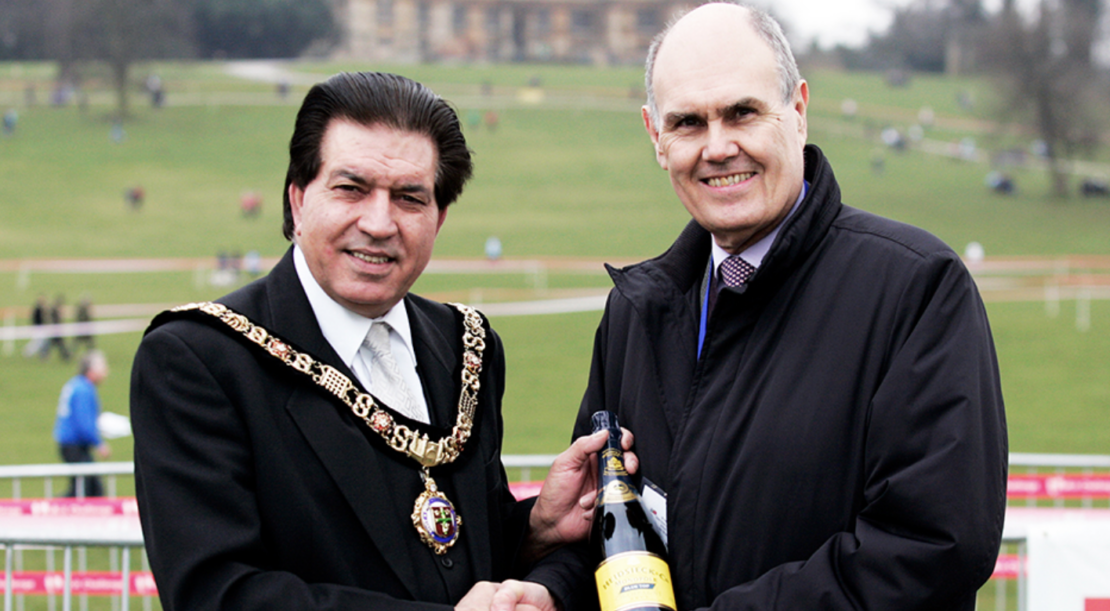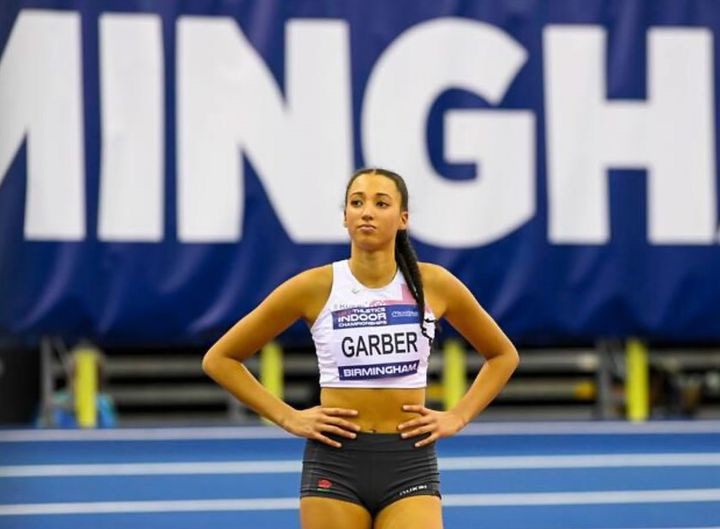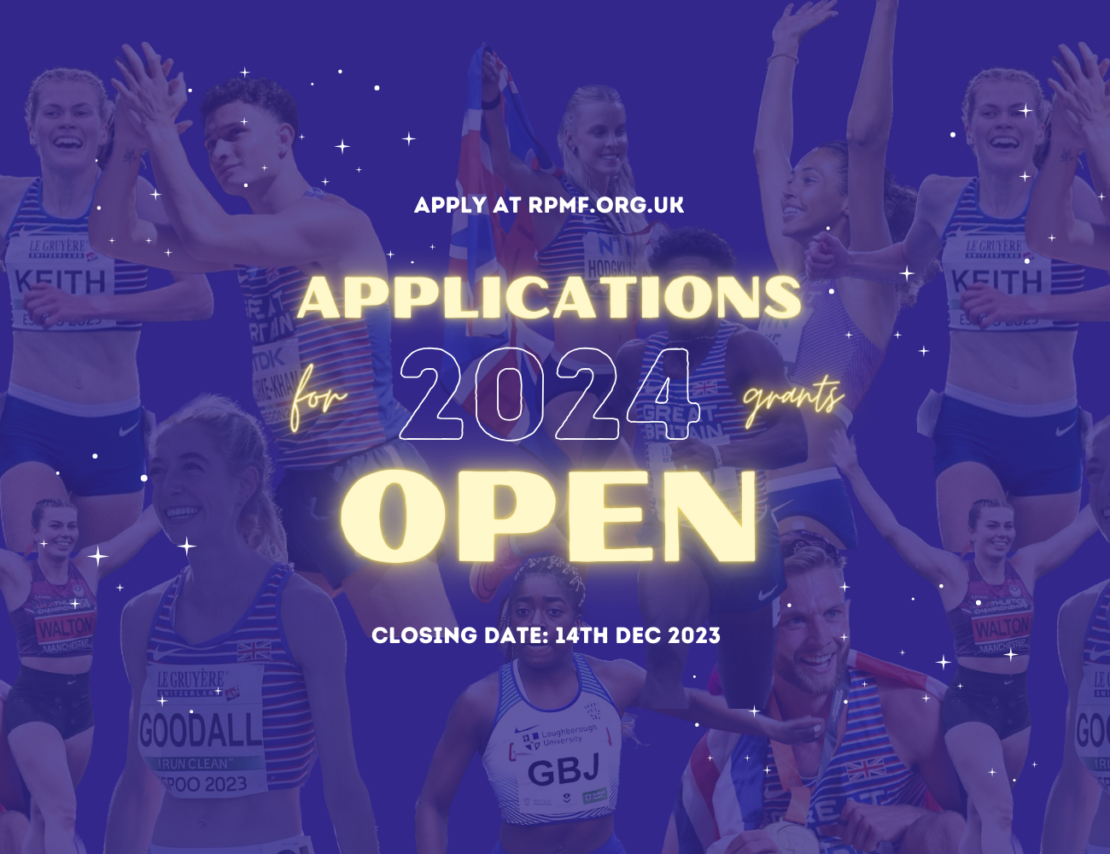
Supported by RPMF in the lead up to London 2012, Robbie Grabarz and his coach Fuzz Caan talk about their journey.
By Ashleigh Spiliopoulou
Winning an Olympic medal is a dream held by athletes all over the world. Only very few will accomplish it, and even fewer will do it in front of a home crowd. Robbie Grabarz remembers feeling an immense sense of pride as he stood on the Olympic podium in London 2012, receiving his bronze medal in the high jump. He remembers the competition as “wild” because the intensity of the environment was like nothing he had ever experienced before. The achievement was incredible, and for the crowd watching on, that is all they would have seen; the utter brilliance of the moment. However, the pride and jubilation was somewhat tainted for Robbie, and his coach, Fuzz Caan. Both knew that Robbie had a 2.40m jump within him, and thus felt a sense of a job just slightly unfinished. Their embrace at the end of the competition also held within it another feeling, one of injustice, as both knew that all the competitors out there that day had not been standing on a level playing field.
The road up to that August day in Stratford had been a long and turbulent one. A phenomenally talented junior, Robbie had cleared 2.22m at the age of just seventeen. However, when he and Fuzz began working together in 2009, Robbie was plagued with injuries, a lack of consistency, and consequently a lack of confidence in his own ability. As with many young athletes, Robbie’s approach to training had been to get stronger and train for longer. Fuzz saw that what he needed instead were quality sessions that would lead to an injury free winter. Through that process, Fuzz believed Robbie’s spirit and belief in himself would return. In their first couple of years working together, Robbie explains that he became a stronger, healthier and more well-rounded athlete, with increased technical proficiency. From 2009 to 2011, Robbie’s consistency developed vastly, as he cleared 2.20m or above in almost every competition he entered. Both coach and athlete knew they were building the foundations of a world-class high jumper.
Though their vision was secure, the financial support Robbie received from his governing body was less so. During that short period in the build up to the 2012 Olympics, Robbie was both picked up and dropped from funding. Having chosen to train full-time after being selected for the world-class performance programme, the withdrawal of the financial support at times tested the viability of continuing with professional high jumping. At the time, one of the stabilising factors that ensured Robbie could continue to train was the financial support he received through being one of the Great 12 Ron Pickering Olympic Scholars; a group of athletes who the charity supported unconditionally up to the Games. Despite the valuable support of the Ron Pickering Memorial Fund, Robbie reached a crossroads at the end of 2011. A friend had offered him a full-time role refurbishing Ferrari’s; something which had been a passion of Robbie’s for a long time. At the same time, he was barely making ends meet in his pursuit of an Olympic high jump medal. Despite the challenges, something within Robbie wanted to prove to himself how good he could be.
When I spoke to Fuzz about this time period, he remembers an athlete who had not fully invested and committed to the process. “Robbie had so much talent just in his big toe” Fuzz explains, but a frank conversation was needed to get him to immerse totally and give one hundred percent to training. The pair of them sat down on a high jump bed at the end of 2011, and Fuzz presented Robbie with what it would take to win an Olympic medal. It was at that moment that Robbie became all in.
Both coach and athlete remember the incredible winter of training that followed. It was like a switch had been flicked, and a new level of physicality had been unlocked. Robbie’s training was phenomenal in the winter of 2011/12, and he recalls it as a really enjoyable time. In January 2012, Robbie cleared a new personal best of 2.34m at a competition in Germany and was ranked number one in the world. The indoor season went from strength to strength, with Robbie going on to clear 2.30m multiple times and compete in the World Indoor Championships. As the outdoor season rolled around, Robbie competed in his first Diamond League in Rome, which he won in emphatic style. 2012 couldn’t be going better, and when Robbie won the gold at the European Championships, he knew he was ready for the Games. “People were starting to stand up and take notice of me,” he said. “I liked that I was the unknown underdog that people were only just starting to recognise, that suited me.”

On the day of the Olympic Final, Robbie remembers an overwhelming desire to win, but this desire came not from a need for admiration or adulation from others, but from a desire to discover his true capabilities. Fuzz described his experience of watching the competition from the stands. “Robbie wanted to beat Ukhov, especially because he knew he was cheating. That pressure caused him to tense up and try too hard when the bar went up.” He said that this became visible when the bar went up to 2.33m. “An official had placed a cone for the steeplechase in the way of Robbie’s run up but he hadn’t noticed. As he was about to take his jump, he noticed it but the timer had already started. Robbie had to run to remove the cone, and he kicked it with such force that at that moment, I knew the competition was done.” Fuzz explains that the margins in track and field, particularly high jump, are just so fine, and when your mindset is too riled up or over stimulated, it is very difficult to bring out your best performance.
The bronze medal which Robbie shared with two future Olympic Champions, Derek Drouin and Mutaz Essa Barshim, should be in no way overshadowed by his physical capability to jump higher. Both coach and athlete emphasise that that is the nature of high jumping, and to have risen to such an intense and thrilling competition, to produce a medal winning jump, is a feat that should be praised.
What is perhaps more impressive, however, is Robbie’s ability to maintain the focus and energy to return to world-class competition just seven days after such an intense Olympic experience. At the Lausanne Diamond League, Robbie cleared an incredible 2.37m before going on to become Diamond League Champion at the end of the summer.
The story doesn’t end there. Following on from the Olympics, a knee problem began bothering Robbie and in early 2014, he had to undergo surgery which meant he was forced to miss the outdoor season. 2015 was a year of re-establishing himself after injury and by January 2016 he was feeling healthy again, just in time for the Rio Olympics. Ever humble, Robbie describes himself as in great physical shape during 2016 and 2017. Fuzz is a little less understated in his description, explaining that Robbie was “in shape to break the world record.” He recalls a competition that Robbie did in the winter of 2017, where he cleared 2.30m whilst still wearing his tracksuit bottoms and having already trained that morning. Just four weeks later, he cleared 2.24m off of a short, four-stride run up in training.
And yet, disaster would strike. In early 2017, Robbie was rushed to hospital for appendix surgery which for many athletes would have signalled another season that needed to be written off. Not for Robbie though, who just eight weeks later was winning a European Indoor silver medal in Belgrade.
Then came 2018, and Robbie’s final year of competition. The Commonwealth Games were early in the summer, over on Australia’s Gold Coast. Robbie navigated qualification comfortably and on the 11th April 2018, he stepped out for the final. In warm up, Fuzz recalls that he looked phenomenal. Yet something wasn’t right. After clearing 2.18m, Robbie walked over to Fuzz and said “I think I’m done.” “For now or forever?” asked Fuzz. “Forever I think.” “Ok.” And, as quickly as their journey began, it was over. They sat and watched the Commonwealth Games together and Robbie never represented his country again. It was a decision that Robbie firmly believes was the right one, at the right time. He remembers feeling a sense of “ugh, I’ve got to do that again” after qualifying. “At that point you know you’re not going to win”, he explains. “It’s just not the right mindset and I’d never had those feelings before. It was so surprising but such a strong feeling that I had to trust it.” Robbie confesses that after pulling out of his next two competitions, he sat and watched them to see how he would feel. He watched all his friends out there, doing the thing he loved most and yet he still didn’t want to be out there with them. That’s how he knew he’d made the right call.
The partnership between Robbie and Fuzz has never faded. They remain close, and both feel that they learned so much from the other. Of Fuzz, Robbie said, “He knows how to bring out the best in people. When it needs to be, he’ll make the environment challenging, but his heart is always firmly in the right place. He will selflessly help people for no reward, just purely because he can. There are very few people in the world like that.”
The impetus for writing this article was Robbie’s recent medal upgrade from bronze to silver at the London 2012 games. It is perhaps ironic, but also entirely fitting, that I am only just getting to it now. When I asked both Robbie and Fuzz about the moment, they responded similarly. Though it is a nice gesture, the piece of metal itself means very little. The moment is gone, the trajectory of his career was shaped by the result that was given on that day nine years ago. Drugs cheats rob clean athletes of so much more than the momento. There is a ripple effect of opportunities which arise from the medal you are presented on the day, and Robbie’s career was defined by the bronze, not the silver. It is fantastic to be catching athletes who have cheated in order to deter others, but for the athletes who lost out on their medal in the moment, it is little concession.
This story is about more than a medal upgrade. It is about a fantastic, complicated, turbulent journey between coach and athlete, which led to incredible highs and necessary lows. Their achievements are to be celebrated and remembered, regardless of the colour of the medals.
At the culmination of our conversation, Robbie had a word of thanks to the Ron Pickering Memorial Fund. He tells me the story of when he first applied to the charity, aged thirteen or fourteen, in order to cover his mum’s fuel costs to take him to training and to buy himself a pair of high jump spikes. “Financially their support meant so much, but actually the biggest reward was psychological. Knowing someone out there had my back and could see that I wanted to go places. That kept me going, it was a massive motivator. It said to me, this is worth it.”
By Ashleigh Spiliopoulou



